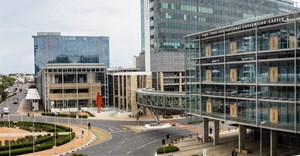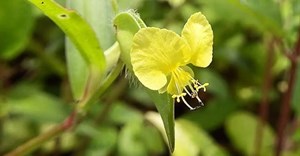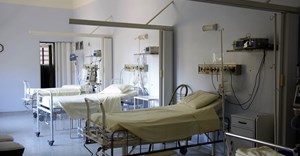
Subscribe & Follow
Crunch time for fruit exports

Over the past 17 years, Hughes has made 54 trips to China. Along the way, he devised three cardinal rules for doing business there: eat the food, drink the "dreadful" wine and never complain.
"Being a South African, the drinking wasn't a problem," jokes Hughes, who could be mistaken for a farmer in his casual, outdoor gear, even though he is being interviewed in the Tru-Cape boardroom in Somerset West.
A robust character, Hughes developed life-long friendships in China and such high-level contacts that at one stage he was hosting up to three senior Chinese government delegations to SA a year. Not that the Chinese were that interested in investing in SA's commercial agriculture, he discovered; their interest lay mostly further north in developing the African continent as a bread basket and source of raw materials to fuel China's rapid growth.
Still, this has brought huge spin-offs for the SA fruit industry, and the SA economy in general.
Africa's improvement
China's willingness to improve African road and port infrastructure to aid its investments on the continent have made it easier for other firms, including SA supermarket chains, to follow. By reinforcing the rise of the African middle class, this has helped raise employment and boost disposable income and consumption.
Over the past five years, Africans have been able to afford to buy food they didn't consume before and imported apples are near the top of the list.
Six years ago, Tru-Cape was exporting fewer than 250,000 cartons of apples to Africa. This year, it should be 10 times that - around 2,4m cartons. Hughes expects demand from Africa to grow by between 15% and 20% a year for the next three to five years, driven by China's activity on the continent.
But this doesn't mean that SA can ignore other markets, especially China, as one of the world's biggest importers of fruit.
"SA needs to be in as many markets as possible to diversify risk and to raise foreign exchange and protect the balance of payments," explains Hughes.
SA's apple producers are also more geared towards the Asian market, having heavily planted new varieties like Fuji and Royal Gala over the past decade, while African palates are still focused on older varieties.
Sanctions hurt SA
SA's apple industry fell far behind the rest of the world during the sanctions era. Once the markets opened up, the industry found itself burdened with unpopular, old varieties. However, over the past 10 years, the industry has replanted with newer strains that are more resistant to disease, achieve better colour and produce a far higher ratio of export-quality fruit (what farmers call higher pack-outs).
This makes farming that much more profitable, which is just as well as farmers are facing rapidly rising input costs, including higher labour, electricity and shipping charges. Most farmers also import their fertiliser, chemicals and farm implements, so the weak rand makes these more expensive. In addition, the industry fears that Sappi plans to cease producing paper for fruit packaging, so that, too, may have to be imported.
Over the past year, the industry has managed to pass on an additional US$3,50 per carton on the export price of apples and R8,60 a carton in the SA market (about R1/bag). These increases were absorbed without any dent in demand, even in soft economic conditions.
Despite rising input costs, Hughes is bullish about the future of the industry. "You can fix the higher input costs by achieving higher pack-outs," he says. He feels that about 70% of the industry is in a good position and that SA has tremendous growth potential in some of the new apple varieties.
New varieties
The industry is even experimenting with the bright yellow Opal apple from the Balkans. A cross between a Golden Delicious and a Topaz, it is naturally pest-resistant and doesn't turn brown once cut.
"The industry has done well but it could have done even better with a bit more government help," says Hughes.
For instance, New Zealand, Chile, France, Belgium and North America have all managed to obtain access to the Chinese market for apples. SA, despite being part of the Brics grouping with China and long having provided its authorities with all the phyto-sanitary risk assessment information they require, has achieved nothing since obtaining access for citrus in 2005 and grapes in 2007.
Hopes were high that the final paperwork would be signed at the Brics summit in Durban earlier this year but, once again, bureaucratic inertia on the side of SA's Department of Agriculture, Forestry and Fisheries (Daff) caused the matter to be stalled indefinitely.
In addition, SA's apple and grape exports have been shut out of Thailand for the past five years thanks to bungling by the SA government, which failed to update phyto-sanitary information on the sector in 2008.
Access to Thailand delayed
Last year, SA obtained access for SA citrus fruit to the Thai market for the first time. It was a golden opportunity to resolve the issues around apples and grapes but nothing was done at the time. A year later, the paperwork involving apples finally seems close to being finalised.
"Things have started to turn around," says Hughes. The industry credits this to its appointment earlier this year of SA's former agricultural attaché to Beijing, Mono Mashaba, as a private consultant to act as its liaison with Daff and to assist the industry in gaining better access to Asian markets.
Hughes is optimistic that with Mashaba's involvement, China will open its doors in due course. Mashaba recently returned to SA from a trip to Thailand, Indonesia, China and Vietnam, where he went with an industry delegation to seek solutions to SA's access problems.
"Because of Mashaba, SA embassies in all these countries are now much more aware of the issues we're facing as fruit exporters," says Hughes. "So we'll see, but at least now somebody's pushing our interests."
Daff was unable to respond to a request for comment at the time of going to press.
Source: Financial Mail via I-Net Bridge
Source: I-Net Bridge

For more than two decades, I-Net Bridge has been one of South Africa’s preferred electronic providers of innovative solutions, data of the highest calibre, reliable platforms and excellent supporting systems. Our products include workstations, web applications and data feeds packaged with in-depth news and powerful analytical tools empowering clients to make meaningful decisions.
We pride ourselves on our wide variety of in-house skills, encompassing multiple platforms and applications. These skills enable us to not only function as a first class facility, but also design, implement and support all our client needs at a level that confirms I-Net Bridge a leader in its field.
Go to: http://www.inet.co.za














